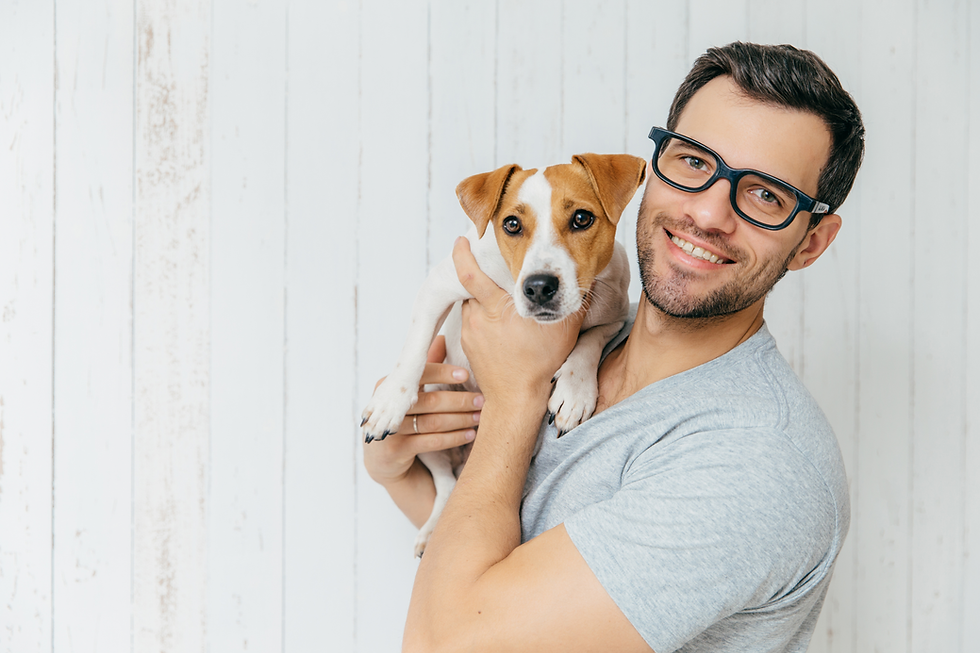Why Does My Dog Pee On My Bed? Here’s What You Need to Know
- travisortiz19
- Aug 15, 2025
- 2 min read
3 min read
If you’ve ever walked into your bedroom and discovered a wet surprise on your bed, you’re not alone. Many dog owners deal with this frustrating—and often puzzling—behavior. While it might feel like your dog is being spiteful, that’s rarely the case. In fact, peeing on your bed is usually your dog’s way of communicating that something is wrong—whether it’s physical, emotional, or behavioral.
In this post, we’ll break down the most common reasons dogs pee on beds, how to determine the root cause, and steps you can take to stop it for good.

Common Reasons Dogs Pee on Beds
Dogs don’t choose your bed randomly—it’s one of the most scent-rich, comfortable places in the house. Here’s why that might trigger unwanted urination:
1. Medical Issues - Urinary tract infections (UTIs), bladder stones, kidney disease, diabetes, or incontinence can all cause accidents.
🔍 Tip: If this behavior starts suddenly, always see your veterinarian first to rule out medical problems.
2. Anxiety or Stress - Changes in routine, loud noises, a new family member (human or pet), or separation anxiety can cause your dog to urinate in unusual places.
3. Marking Territory - Even house-trained dogs may “mark” their territory, especially if they smell other animals on your bed (from visitors, laundry, or even your clothes).
4. Lack of Proper Housetraining - For younger dogs or rescues, peeing on the bed may be a sign that housetraining isn’t complete—or that your dog needs more consistent reinforcement.
How to Determine the Cause
Start by observing when and how it happens:
Medical? Accidents happen frequently or soon after drinking water.
Anxiety? Urination occurs when you leave or after a stressful event.
Marking? Only small amounts of urine, often in the same spot.
Training gap? Happens at random times, especially when you’re not watching.
Keeping a simple log can help your vet or trainer pinpoint the root cause.
Steps to Stop the Behavior
1. Rule Out Medical Causes - Visit your vet for an exam and urinalysis. If your dog has an infection or other health issue, medication can often resolve it quickly.
2. Reduce Anxiety Triggers - Provide safe spaces, calming aids, or extra exercise. For separation anxiety, consider gradual desensitization training.
3. Reinforce Housetraining - Go back to basics—frequent potty breaks, praise and rewards for outdoor peeing, and limiting unsupervised access to the bed.
4. Remove Temptation - Close your bedroom door or use a pet gate until the issue is resolved.
Wash bedding with an enzymatic cleaner to remove lingering odors.
Important Considerations
Don’t Punish: Scolding after the fact won’t help and may increase anxiety.
Timing Matters: Catching your dog in the act allows you to redirect them outside.
Patience is Key: Behavior change takes time—especially if stress or anxiety is involved.
Why Addressing It Quickly Matters
💵 Prevent Costly Vet Bills – Early detection of medical issues can save money in the long run.
🏠 Protect Your Home – Urine can damage bedding and mattresses if not handled promptly.
🐾 Improve Quality of Life – A happy, healthy, confident dog means fewer accidents and a better bond with you.




Comments